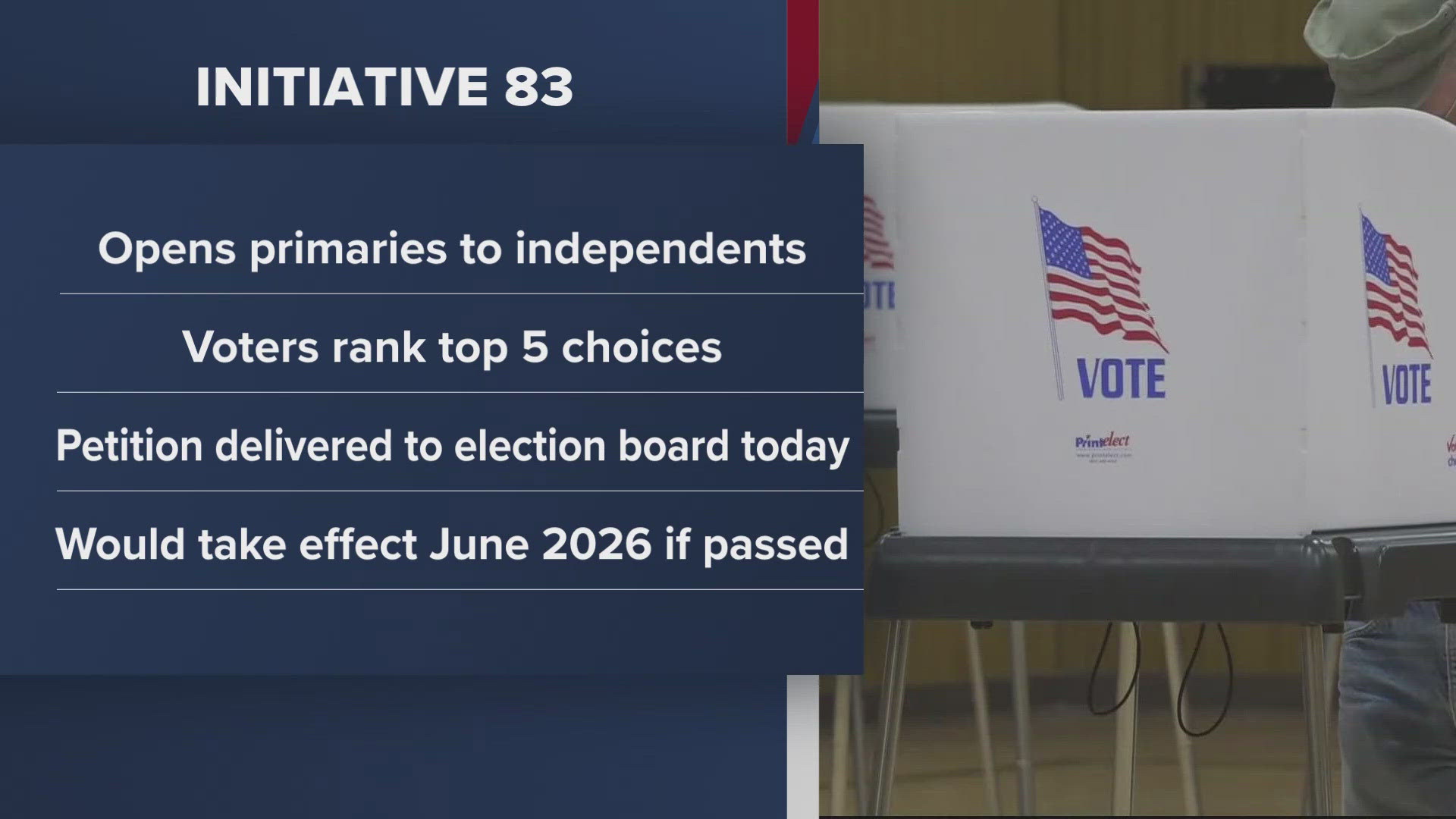WASHINGTON — When D.C. residents get to the ballot box in November, alongside the political candidates, they will be asked to vote on a proposal called “Initiative 83.”
But what is it, and what does it mean for D.C. voters?
Initiative 83 proposes two changes to voting in the District. First, it seeks to implement ranked choice voting, and second, it seeks to allow voters who are not registered with a political party to vote in the primary of their choosing.
Ranked choice voting is simple. Instead of voting just for one candidate, a person would be able to rank up to five candidates.
Where it gets confusing is how those votes are counted.
Ranked choice voting is also known to some as instant runoff voting. In a tight race with more than two candidates, it’s possible that none of the candidates get more than half of the votes. In a ranked choice system, the winner being the person with the most votes if they receive under 50%. In rounds, the least popular candidate’s votes go to the person the voters ranked next, and so on and so forth until one candidate has received more than 50% of the vote, according to bipartisan Takoma Park nonprofit Fair Vote.
For example, in a race with three candidates, you could choose to vote for your favorite candidate with a No. 1 rank, and rank your second favorite candidate as a back up. If your favorite candidate gets the fewest amount of votes, your vote would then go to the candidate you ranked second automatically.
Problems only come in, however, when people give two candidates the same ranking or don’t rank their vote at all. Those are called overvoting and under voting respectively. Overvoting and under voting can lead to no candidate being considered for that ballot at all.
Groups in favor of ranked choice voting say it gives voters more of a voice in close elections. Make All Votes Count D.C. is a group led by Ward 7 Advisory Neighborhood Commissioner Lisa D. T. Rice, who proposed the initiative, and former president of Ward 8 Democrats Philip Pannel.
Make All Votes Count D.C. wants ranked choice voting for multiple reasons. They cite data from Fair Vote that it leads to more women and people of color being elected and that it helps reduce negative campaigning.
The group also says the two proposals, ranked choice voting and semi-open primaries, are linked in the initiative because they are related. It says that unaffiliated voters are the second largest voting bloc in D.C., and this will allow them to have a voice in primaries.
But some groups are campaigning against Initiative 83. D.C.’s Democratic party is against the proposal. The group Vote No on 83 says its mission is to protect Democrats’ votes.
They disagree directly with Make All Votes Count D.C. Upon opening their website, it says in bold letters, “Don’t Be Fooled! Initiative 83 will suppress the vote of marginalized populations and reverse the gender and racial make-up of DC elected officials.”
According to their frequently asked questions section, Vote No on 83 believes that allowing nonpartisan voters into partisan primaries would “suppress the Democratic voting rights.”
In the reasons to vote no section, Vote No on 83 writes that “RCV research,” which the group does not share specifics on or links to, “shows that when asked to rank three candidates the ability to accurately do so was lowest among African Americans, Hispanics, and those whose first language is not English,” therefore suppressing the votes of people of color. It also says that data shows votes from seniors and people with disabilities would be suppressed because that research also says that their votes are more likely to be discarded due to overvoting and under voting.
Make All Votes Count D.C. disagrees.
“People rank things everyday: from the school lottery, to public housing buildings, to what people order when they go out to eat. It’s a proven system and voters overwhelmingly understand it and want to keep using it,” the organization wrote on their website.
Whatever you choose, it's up to you. Vote for or against the proposal in the general election this November.

